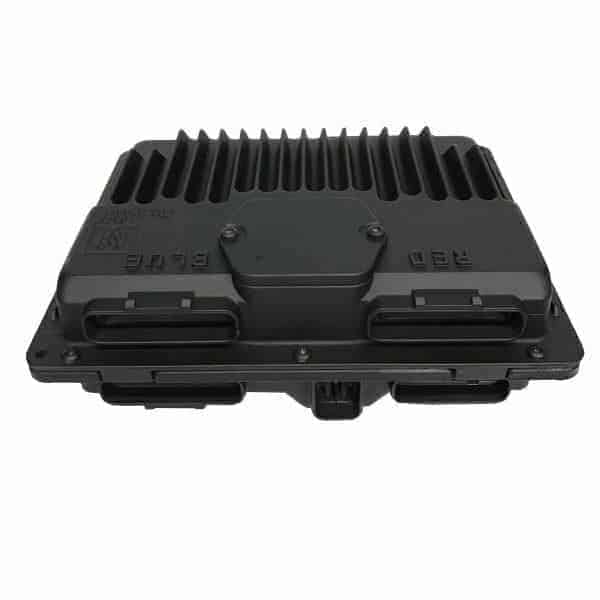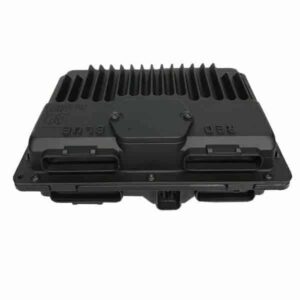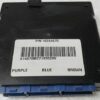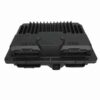Restore Your GM Truck’s Brainpower and Performance
If you’re dealing with frustrating, hard-to-diagnose issues on your 1998 Chevrolet S10, GMC Sonoma, or another compatible GM vehicle, the Powertrain Control Module (PCM) could be the culprit. As the central computer for your engine and transmission, a failing PCM can cause a cascade of problems, from a no-start condition to poor fuel economy and erratic behavior. This isn’t just an inconvenience; it can leave you stranded. We offer a reliable and straightforward solution: a genuine, used OEM PCM, meticulously tested and programmed specifically for your vehicle using your VIN.
A Technician’s Notebook: The Ghost in the Machine
I remember a 1998 GMC Jimmy that came into my shop a few years back. The owner was at his wit’s end. It would run fine for days, then suddenly stall at a stoplight and refuse to restart for an hour. He’d replaced the fuel pump, ignition coil, and crank sensor, but the problem persisted with no consistent trouble codes. After verifying fuel pressure and spark were dropping out intermittently, my gut told me to look at the PCM. On these older GM trucks, I’ve seen the internal processors develop heat-related failures that don’t always set a hard code like P0601. We swapped in a VIN-programmed PCM, and the truck ran perfectly. It was a classic case where the “brain” was the problem, and this is the exact fix that got that customer reliably back on the road.
Is Your Truck Exhibiting These PCM Failure Signs?
A faulty PCM can manifest in many ways. If you’re a DIYer trying to diagnose a tricky issue or a professional mechanic confirming a diagnosis, check if your vehicle is showing these common symptoms:
- ✔ Check Engine Light is on with codes related to internal module failure (e.g., P0601, P0602, P0605, P0606).
- ✔ Engine cranks but won’t start.
- ✔ Unexplained stalling or rough, inconsistent idling.
- ✔ Noticeable decrease in fuel efficiency.
- ✔ Harsh or incorrect automatic transmission shifting.
- ✔ Failure to pass an emissions test.
- ✔ Communication errors with your scan tool.
The Smart, Simple Solution for your 1998 S10 Sonoma PCM
Why choose our PCM? Because we eliminate the biggest headaches associated with PCM replacement. A new module from the dealership is expensive, and any replacement—new or used—typically requires a trip to a shop for professional programming. Our service bundles it all into one. We take a thoroughly inspected, functional, used OEM computer and flash it with the latest GM software updates for your specific vehicle. All we need is your VIN. When the part arrives, it’s ready to be installed, saving you significant time and money. This is the most direct path to getting your truck running right again.
A Straightforward Guide to Installation
Installing your pre-programmed PCM is a job most DIYers can handle in under an hour with basic hand tools. Follow these steps for a smooth installation.
- Safety First: Always disconnect the negative terminal from your vehicle’s battery and secure it away from the post to prevent any accidental reconnection.
- Locate the PCM: On most of these trucks and vans (like the S10/Sonoma, Blazer/Jimmy), the PCM is located in the engine bay, often on the driver’s or passenger’s side fender well or firewall. Refer to your vehicle’s service manual for the exact location.
- Disconnect the Harnesses: Carefully release the locking tabs and unplug the large electrical connectors from the old PCM. Inspect the connectors for any corrosion or damage.
- Remove the Old Module: Unbolt the old PCM from its mounting bracket. It’s typically held in by a few bolts or nuts.
- Install the New Module: Mount your new, pre-programmed PCM onto the bracket and secure it. Reconnect the electrical harnesses, ensuring they click firmly into place.
- Reconnect Power: Reattach the negative battery terminal.
- Perform Security Relearn: Your vehicle’s anti-theft system (Passlock/VATS) may need to be relearned to the new PCM. This is a simple procedure you can do yourself, typically involving turning the key to ‘ON’ for 10-15 minutes. We include instructions for this process.
Verified Vehicle Compatibility List
This PCM, identified by service ID 9355699, is a direct replacement for a wide range of GM vehicles. Please verify your part number or match your vehicle from the list below. This part is compatible with part numbers 09355699, 16266645, 16250279, 16258815, and 9366810.
- ✔ 1998 Astro / Safari (4.3L)
- ✔ 1998 Blazer S10 / Jimmy S15 (4.3L, w/o build date opt ZN4)
- ✔ 1998 Bravada (4.3L, w/o build date opt ZN4)
- ✔ 1999 Escalade
- ✔ 1998 Envoy (w/o build date opt ZN4)
- ✔ 1998-1999 Express / Savana 1500, 2500, 3500 (Gasoline Engines)
- ✔ 1998 Hombre (4.3L, w/o extended build date opt ZN4)
- ✔ 1998-1999 C/K 1500, 2500, 3500 Pickups (Gasoline Engines)
- ✔ 1998 S10 / S15 / Sonoma (4.3L, w/o build date opt ZN4)
- ✔ 1998-1999 Suburban 1500, 2500 (Gasoline Engines)
- ✔ 1998-1999 Tahoe / Yukon (Gasoline Engines)
Frequently Asked Questions
How do I provide my VIN for programming?
After you complete your purchase, simply send us a message with your vehicle’s 17-digit Vehicle Identification Number (VIN). We cannot ship the module until we receive this information.
Is this a new part?
No, this is a genuine OEM part sourced from a salvaged vehicle. Each unit is thoroughly inspected and tested to ensure full functionality before being programmed and shipped. This provides OEM reliability at a fraction of the cost.
Do I need any special tools to install this?
No special tools are required. Basic hand tools like a socket set will be sufficient for the physical installation. You will also need to perform a simple key-cycle security relearn procedure, which we provide instructions for.
What if my original part number is different?
This module is a direct replacement for several part numbers, including 09355699, 16266645, 16250279, and more as listed. As long as your vehicle is on our compatibility list and your original module is one of the listed interchanges, this part will work. The key is the VIN-specific programming.
Will this fix my transmission shifting problems?
In many cases, yes. The PCM controls both the engine and the transmission. If the PCM is faulty, it can send incorrect signals to the transmission, causing shifting issues. If you’ve ruled out mechanical or solenoid issues, a faulty PCM is a likely cause.



